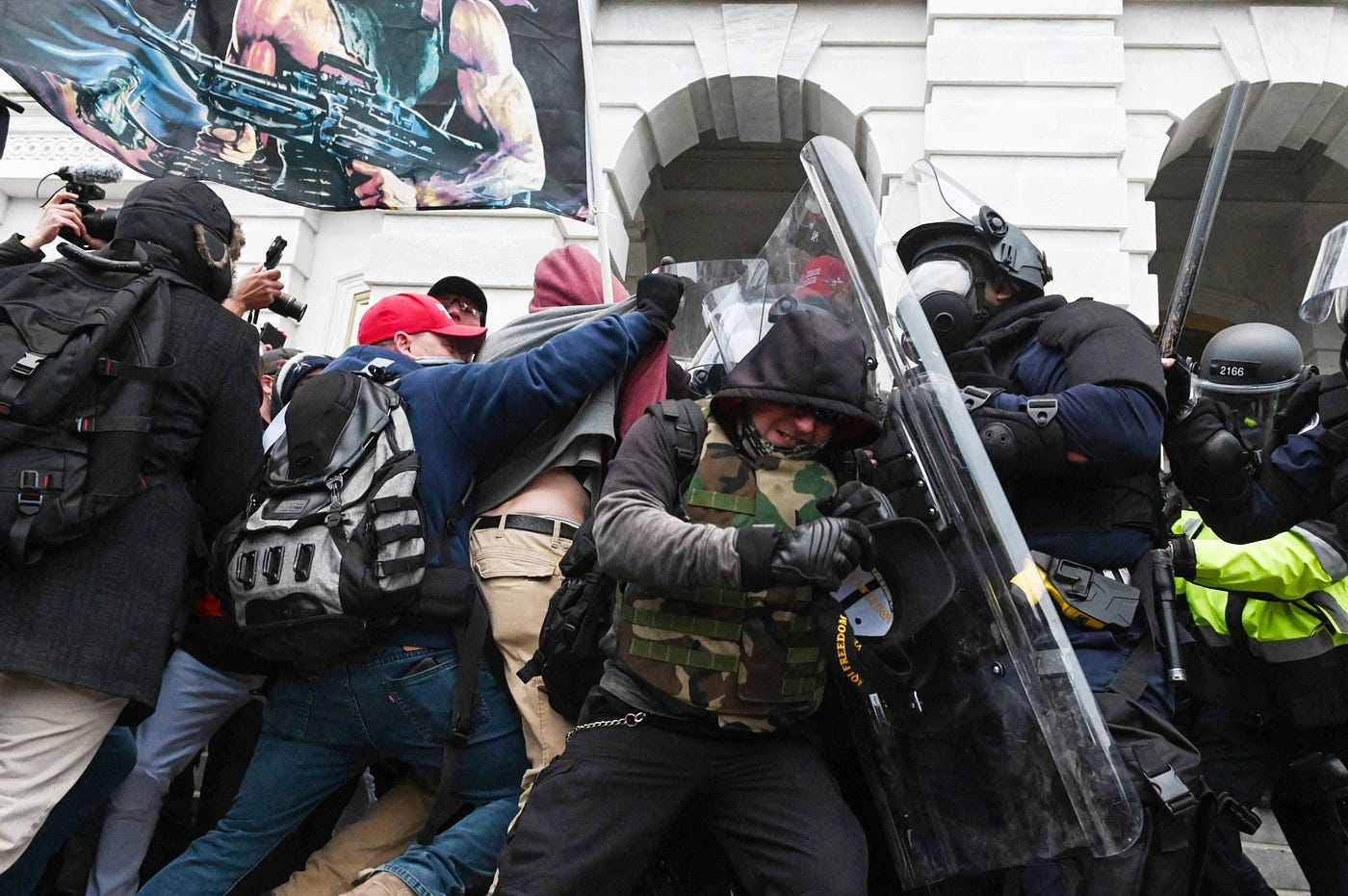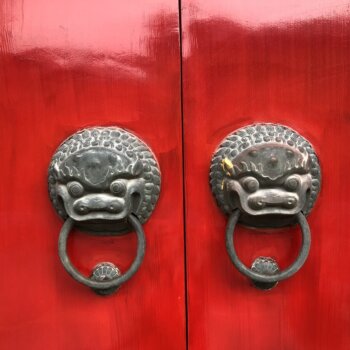The root of patriotism is the belief that one is part of something better than the alternative; and that this confers not only prestige but a sort of pre-determined ascendency among a chosen few. This kind of sanctimonious thinking is the kind of toxic narrative that leads to the justification of wars between patriots of a different color.

As I read the latest vitriol that dominates the news these days, and the acts about which it purports to write ‘objectively’, I couldn’t help but wonder how on Earth America plummeted so quickly from a nation of largely respectful, can-do, pluralistic, tired-poor-huddled-mass-welcoming, love-thy-neighbor believers into a nation of caustic, obstructionist, nativistic, immigrant-hunting, wealth-worshipping, kill-thy-neighbor antagonists.
Which brought me to the idea that patriotism — that most American of words — may have something to do with it.
Patriotism is part of a family of concepts that includes chauvinism, jingoism, nationalism and — turning the volume up — ultranationalism. Like patriotism, all of these terms are centered on the idea that one’s in-group is somehow both distinct from, and better than, all other groups. Patriotism and its brothers have been used throughout history to justify out-group exclusion, persecution, and wars — in blood and business, equally — not because at its fringes, patriotism can be misguided, but rather because patriotism itself is the articulation of difference rather than common ground. Said simply, patriotism divides rather than unites. Yes, it also unites any given subset of adherents; but with over 200 countries in the world, there are far more “them” than “us”.

Voltaire put it beautifully:
“It is lamentable, that to be a good patriot one must become the enemy of the rest of mankind.”
Kōtoku Shūsui said that “patriotism is a discriminating and arbitrary sentiment confined to those who belong to a single nation-state or live together within national borders,” before arguing that “any man would rush without hesitation to rescue a child who was about to fall into a well,” as an act of “love and charity”, without waiting first to determine whether it was his child, belonged to his in-group, or nation. He believed that patriotism was used primarily to dehumanize others for whom we would otherwise have empathy.
He’s 100% right about its arbitrary nature. Ask yourself: what is it that makes an American American? Is it being among the first humans to occupy the land, like the 574 tribes it once sponsored? Is it those who conquered the land by killing the overwhelming majority of those same peoples, renaming it America in the process, then establishing guiding principles for the founding in-group? Is it their descendants — the white people who still represent the majority — at 72% — of citizenry there today? Or, is it those lucky enough to have been granted entry since America’s founding, in spite of the fact that they were born and raised elsewhere, their value systems forged and baked long before they emigrated to its shores? In numbers, there are over 800 languages spokenin the New York borough of Queens alone, not because the nation taught these to them or even tolerates it, but because those who speak them once belonged to other patrimonies.
To revisit the question, What, then, IS an American? It’s not a common language, or cultural inheritance, or place of birth, or even ideology. It’s not DNA, nor skin color, nor a belief in universal healthcare, or in greed, small government, or Christianity. It’s not even a belief in the Constitution as a binding document, interpretations of (and modifications to) which are vociferously fought today.
Just look at January 6th.

Patriotism, indeed.
Even the Constitution’s chief author — Thomas Jefferson — believed that the fixed idea of a people was farcical. Of the seminal document that he himself penned, the third American President wrote to the future fourth — James Madison — “…between society and society, or generation and generation there is no municipal obligation, no umpire but the law of nature.” He added, “it may be proved that no society can make a perpetual constitution or even a perpetual law. The earth belongs always to the living generation… Every constitution, then, and every law, naturally expires at the end of 19 years. If it is enforced longer, it is an act of force and not of right.”
Nineteen years is the tenure of the average human generation.
To Jefferson, then, the idea that any dogma — patriotism’s primary fuel — would outlast a single generation was “an act of force, and not right.”
Jefferson, whom I count among history’s most erudite and lucid thinkers in spite of the considerable ‘sins’ he committed in his lifetime, didn’t even believe in the patriotism on which American exceptionalism is based, largely because of his words. Rather, his writings stemmed from a deeper place, one of aspiration for something that didn’t yet exist, perhaps because it couldn’t. He understood that no place or people should be lionized or anointed, but for their constant struggle to improve everyone’s lot. In that sense, Jefferson was the most pluralistic and humanist of politicians who came to power and then actually governed that way.
Like Voltaire, Jefferson believed in humanism over patriotism.

Patriotism is the expression of exclusion rather than inclusion. You either belong, or you’re an outsider. Former U.S. President George Bush (the Younger) infamously warned, in an attempt to cow other sovereign nations into following him into war, after 9/11, “Every nation, in every region, now has a decision to make. Either you are with us, or you are with the terrorists.”
Bush Jr. was a hell of a patriot, touching on a nerve that runs through the American self-narrative of exceptionalism. In fact, he named his key legislative accomplishment — one that amounted to the significant erosion of Jefferson’s First and Fourth Amendments — The Patriot Act.
It’s not just America. Not close.
The Correlates of War, an ongoing, now-58-year old academic study to understand the causes of warfare, has found a correlation between war propensity and patriotism. Patriotism in Germany, for example, ranked at the top of the list before World War I, which it initiated, by invading Belgium, and after which it precipitated Hitler’s rise to power. That was long before the über-patriotic nation and its new übermensch launched their most infamous offensive — World War II. It still ranks as the most deadly conflict in human history. Today, that same country is now Europe’s most functional economy, often its savior, and ranks, critically, at the bottom of patriotism surveys.
Food for thought.
Mao. Lenin. Stalin… They are just three of history’s other great patriots — gentlemen who count among them the murder of more than 100 millionof their own patriots, let alone those external to China and Russia who were on the receiving end of their patriotic wars.

Anything that divides a people into an in-group and out-group may well be convenient to those in power, but undermines our shared humanity. That’s because at the root of patriotism is the belief in one’s superiority — that one is somehow part of something better than the alternative; and that this confers not only prestige but a sort of pre-determined ascendency among the chosen few. This kind of sanctimonious thinking is the kind of toxic narrative that leads to the justification of wars between patriots of a different color, as the Correlates of War has shown us to be borne out, statistically.
We didn’t need them to tell us that.
To state the obvious, this is dangerous thinking, much like anything that emphasizes difference over commonality.
While we are using ‘patriotism’ in its literal form, referring to sovereign territories, it fits just as well on any group of any kind in which members are zealous defendants: of religion (the other primary cause of wars); of race theory (yet more wars, large and small, and other forms of subjugation and slavery); of sexual truths (inequality, abuse, slavery, and murder); and of business narratives (white-collar crimes that often result in economic pain for the out-groups, whose broader fallout is, on more than occasion, societal ill-health, or early death).
One’s humanness is no more the result of one’s skin tone, passport, preferred deity, genitalia, paycheck, or business card than it is of one’s favorite meal, outfit, or book. Though, truth be told, there have been more than a few fights over these paltry things, too.
If we spent half of much time looking for common ground as we do on outlining our differences, there would be fewer (if any) wars, less anxiety and fear, more camaraderie and empathy, and deeper, more life-affirming connections between people.
We’d be happier.
We also may just learn a lot more about more things and people — and what relates us to them — than we do when our energies are depleted focusing on shutting down curiosity and open, judgment-free inquiry. If we did, not only would we feel more connected to the rest of humanity, we might marvel at its incredible diversity.
Why is it that we allow ourselves to do just that when it comes to the Earth’s natural and manmade diversity — the flora, fauna, and architecture for which so many of us travel precisely to see, and marvel — but when it comes to other humans, we dig in like tribal enemies, looking to take cover among “others like us”, while building all manner of toxic narrative about those against whom we can draw a difference?
Patriotism is Anti-Human, plain and simple.
Here’s how it works: Patriotism leads to myopia. Myopia leads to xenophobia. Xenophobia leads to defensive behavior. Defensive behavior leads to scapegoating. Scapegoating leads to targeted violence. Targeted violence escalates into war. War leads to destruction and death. Destruction and death lead to entrenched hatred. And enhanced hatreds structurally reinforce patriotism.
It is a vicious, life-destroying cycle. And it is one that — left to its own devices — can easily turn inward.
Did I mention Jan. 6?
Patriotism’s end state is that it splinters into ever-smaller in-groups until it breaks down into chaos that destroys the very thing that created it.

As the 15th-century proclamation goes, “The king is dead, long live the king!”
Be a humanist. Don’t be lured by the illusion of patriotic exclusivity.
Humanity, in all its glorious diversity, is stunningly unpatriotic.





























